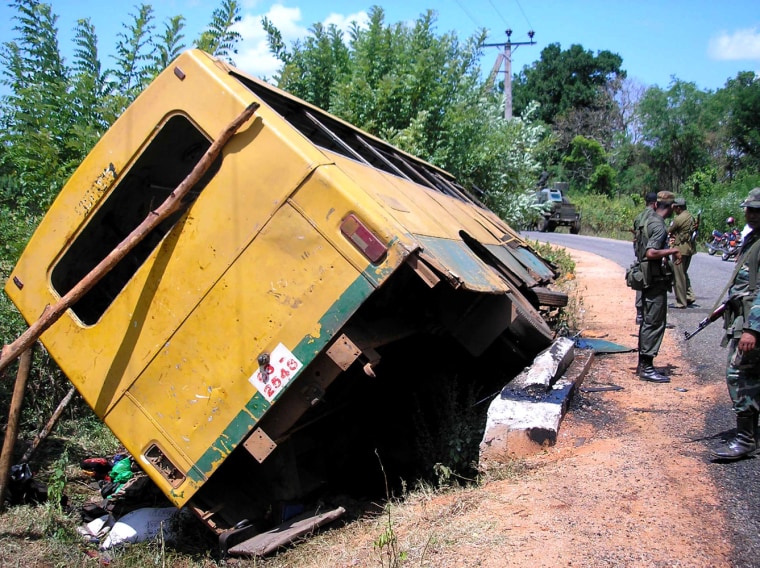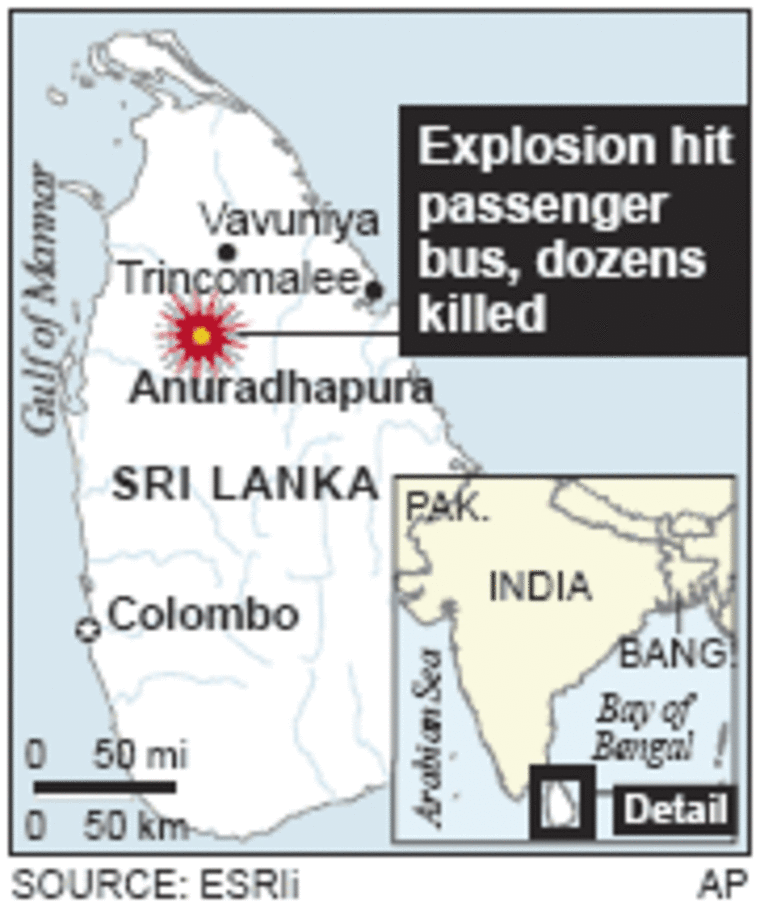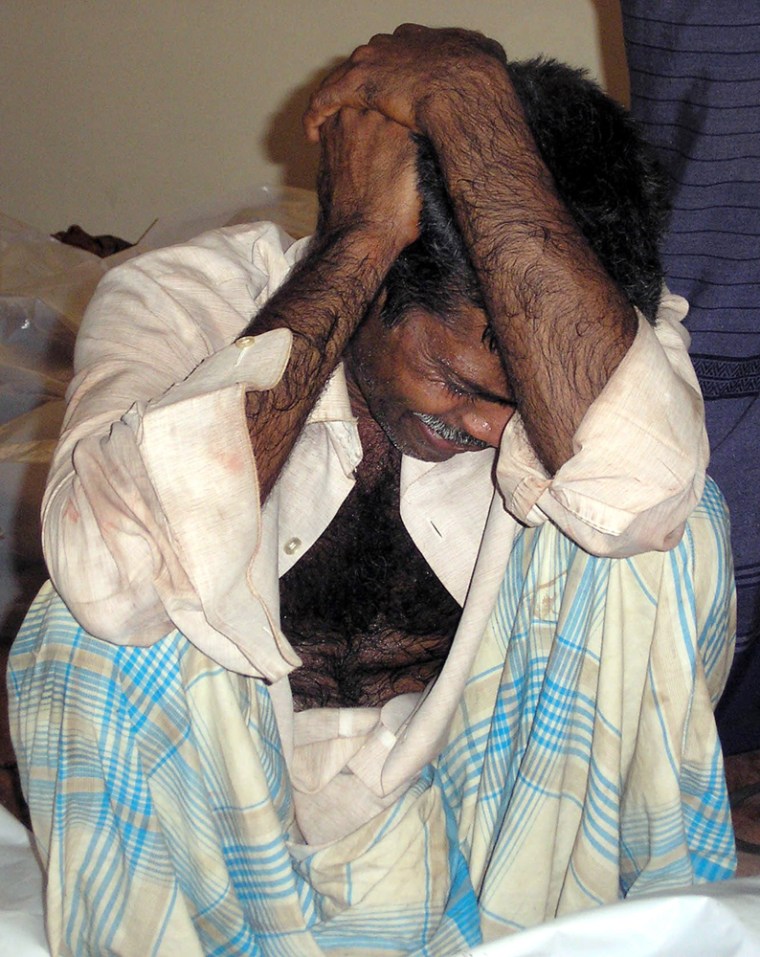A powerful land mine ripped through a bus packed with commuters and schoolchildren in northern Sri Lanka on Thursday, killing at least 62 people and wounding 78 the army said.
The army blamed the Tamil Tiger rebels for the attack, but the rebels denied responsibility.
Not long after the explosion, Sri Lankan government jets bombed Tamil Tiger positions in the island's northeast, the rebels and a military source said. There was no word on casualties from the raids on rebel-held areas of northeastern Mulattivvu and Trincomalee districts.
"There was aerial bombing...in the Mulattivvu area," Tiger media coordinator Daya Master said. "There is aerial bombing and shelling in Mutur (near Trincomalee) and it is still going on."
The bus explosion — described as “huge” by military spokesman Brig. Prasad Samarasinghe — was the worst single act of violence since the government and Tamil Tiger rebels signed a cease-fire in 2002, and renewed fears of a return to war.
A doctor at the hospital where the bodies were taken, S.B. Bothota, said that 15 schoolchildren were among the 58 killed. Another 78 people were wounded by the blast, which also hit bystanders in a crowded part of Kabithigollewa, a town in the northern Anuradhapura district.
The attackers used a claymore mine, a block of plastic explosive that sends a hail of ball-bearings towards its target, in the north-central province of Anuradapura, police said.
Fears of end to peace process
The government said it was still digesting the news. It has retaliated for some previous attacks by launching air strikes on rebel territory.

They said they believed the Tigers wanted to spark Sinhalese attacks on ethnic Tamils, driving them into the arms of the rebels.
“Without doubt, this is intended to create a civilian backlash,” said head of the government peace secretariat Palitha Kohona. He said he hoped and believed it would not succeed.
Further north in the town of Vavuniya, near the border with rebel territory, police said they had found what they suspected was a bomb near a fish market. The bomb squad was at the scene, they said.
Diplomats fear Sri Lanka’s peace process is reaching its endgame.

The Tigers pulled out of peace talks in April but had agreed to talks last week in Oslo over the safety of ceasefire monitors. But on arrival, they refused to meet the government.
Diplomats say neither the government nor the Tigers have shown sufficient flexibility and fear that if violence continues the country will gradually fall back into a war that has already killed more than 64,000 people.
